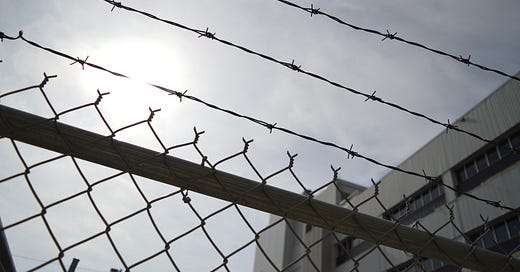
Is Texas for or Against America?
It’s not really Texas vs. the USA, because Texas' behavior helps all Americans
Texas has been in the news recently for actively working to defend its border, and thus the nation’s border, despite the wishes of the federal government. When conservatives cheer the decision, some cautious observers have argued that we cannot applaud Texas’ decision without implicitly asserting that a leftist state therefore has the right to open its borders against the wishes of a conservative national government.
It’s a broken argument, however, because this is more than a states’ rights case. The dissension that Texas is making is, at its core, a moral one. It has a right to defend its borders in order to defend its citizens. A state would not have the right to endanger its citizens (and those of the rest of the nation) by unlawfully opening its borders. Texas’ right to close its borders is based on its moral duty to defend those in its care. Therefore, it’s not simply about the authority of one body over the other, but about the action itself.
Of course, Texas is being villainized for its crackdown on unchecked migrants, but condemning the state for controlling immigration is a naive position. Border control can actually be a humanitarian action, though it is rarely seen as such because of who controls the media. Consider that with completely open borders, there would be an increase in preventable, violent crime, as the cartel wars south of the border spill in. American citizens and their land would be caught in the often-literal crossfire. At the same time, American social safety nets would quickly become overwhelmed, affecting the poorest of Americans first, but eventually spreading throughout the middle class as an overwhelmed healthcare system and large-scale joblessness take their toll. That now-overwhelmed infrastructure would also be unable to help immigrants. No one, neither citizens nor asylum-seekers, are benefited by a system pushed past the breaking point.
Some of these effects are already taking place, even though the borders are not (officially) open. One cannot have open borders and a welfare state—or even a system of any social safety nets. You must pick between the border and those civilizational protections.
A nation of peoples may choose, as an act of charity, to ensure that when someone falls on hard times, he has some basic needs met, such as with unemployment. That’s a choice made by those people for those people. Those using the system paid into it themselves at one time—perhaps so did their parents. It was a group arrangement, on a national level. A newcomer who hasn’t paid in, but does withdraw, creates a strain on the system and facilitates an injustice. If enough people do that, the system will collapse. That phenomenon can be duplicated across every social safety net that we have, if those systems become available to everyone from every part of the world that is poorer than our own (which is to say, most of it).
This is not to say that the immigration laws in the US, as written (yet widely ignored) are the sole necessary solution to the crisis at the southern border. Almost everyone agrees that the system needs reform. But the solution to a clogged and confusing immigration system cannot be open borders, at the cost of the American way of life, and of American lives themselves.

















I don't agree with complete multiculturalism, myself. It all depends on who assimilates and whether they'll be treated fairly by locals.
God bless you, Sarah!!
All 50 states should back Texas and join with them to stop the chaos!